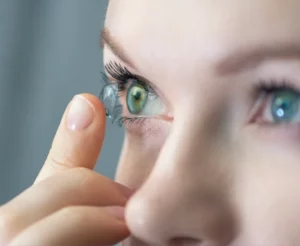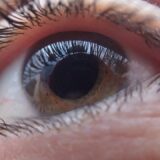The critical importance of removing contact lenses before sleeping

It was both sad and frightening to read the recent report about a young man in Florida who lost sight in one eye after sleeping with his contact lenses on. After visiting five different ophthalmologists and two cornea specialists, it was discovered that he had a very rare parasite in his eye, and he was diagnosed with acanthamoeba keratitis.
While this is an extreme case, it reminds us of the importance of proper contact lens wear to avoid any health risks.
Why people love wearing contact lenses
Contact lenses have become an essential part of modern life for millions of people around the world who need vision correction. They offer a more practical and sometimes more aesthetically pleasing alternative to eyeglasses for certain people. However, as convenient as contact lenses are, they come with specific risks and liabilities. A crucial rule to follow is to avoid sleeping with your contact lenses on. This article explores the importance of removing contact lenses before bed to preserve vision and prevent eye infections.
Sleeping in contact lenses can lead to serious consequences, including eye irritation, infections and even vision loss. Having your eyes closed while sleeping hinders the natural process of oxygen supply and tear production. This is particularly problematic when contact lenses are worn, as they can limit the amount of oxygen reaching the cornea. Lack of oxygen to the cornea can cause a condition called hypoxia, which can lead to corneal swelling and discomfort.
In addition, wearing contact lenses overnight increases the risk of infections such as microbial keratitis, an infection of the cornea caused by bacteria, viruses, fungi or parasites, as is the case with the 21-year-old from Florida. Microbial keratitis can result in corneal scarring and permanent vision loss if not treated promptly and properly.
The risks of sleeping while wearing your contact lenses
In addition to increasing your risk of infections, sleeping with contact lenses on can cause dry eyes. The tear film, which keeps the eyes lubricated and healthy, may not adequately cover contact lenses while sleeping, causing discomfort and dryness. Additionally, wearing contact lenses for an extended period of time can cause debris and protein deposits to build up on the surface of the lens, which can further irritate your eyes and even cause corneal abrasions.
It is essential to follow proper hygiene practices and adhere to the recommended usage schedule. Even lenses designed specifically for use at night can still pose risks, and it’s wise to discuss the pros and cons with a specialist before deciding to wear them while you sleep.
To ensure the health of your eyes, make it a habit to remove your contact lenses before bed. Follow proper cleaning and disinfecting procedures and store them in a clean, sealed case with fresh contact lens solution. This practice will minimize the risk of infections and allow your eyes to heal overnight.
Prioritize your eye health and seek advice from a certified eye-care professional.
Remember that your eyes need time to breathe and recover, and contact lenses can interfere with this process. By heeding an expert’s advice and taking the simple precaution of removing your lenses before bed, you can avoid potentially serious complications, including eye infections and vision loss. Prioritize your eye health and enjoy the benefits of contact lenses without compromising your well-being.
About Gisele Crespo
Gisele is a Florida Board of Opticianry licensed optician, Contact Lens Fitting Board certified and owner of Mango Optic in Boca Raton. Her passion is helping people see better so they can get the most out of life. She holds a degree in optics from the Benjamin Franklin Cummings Institute of Technology.




